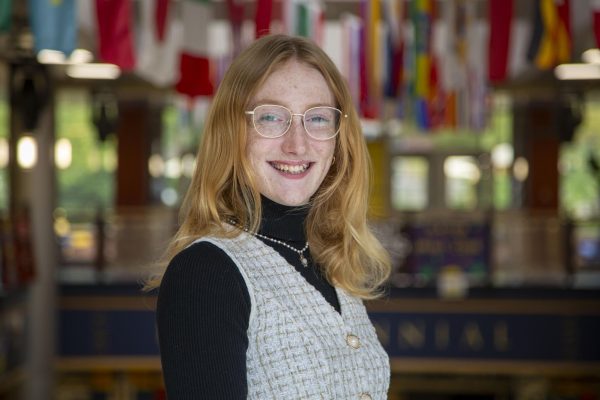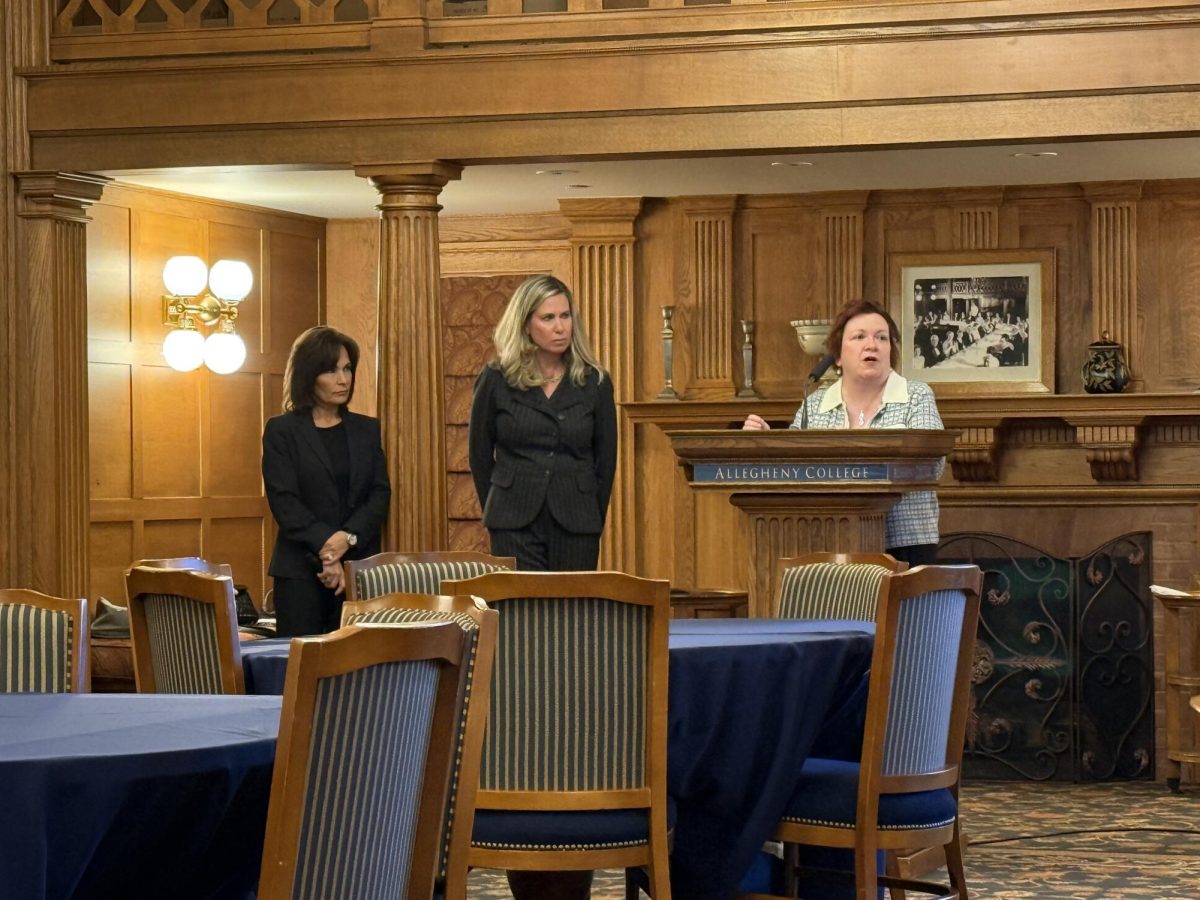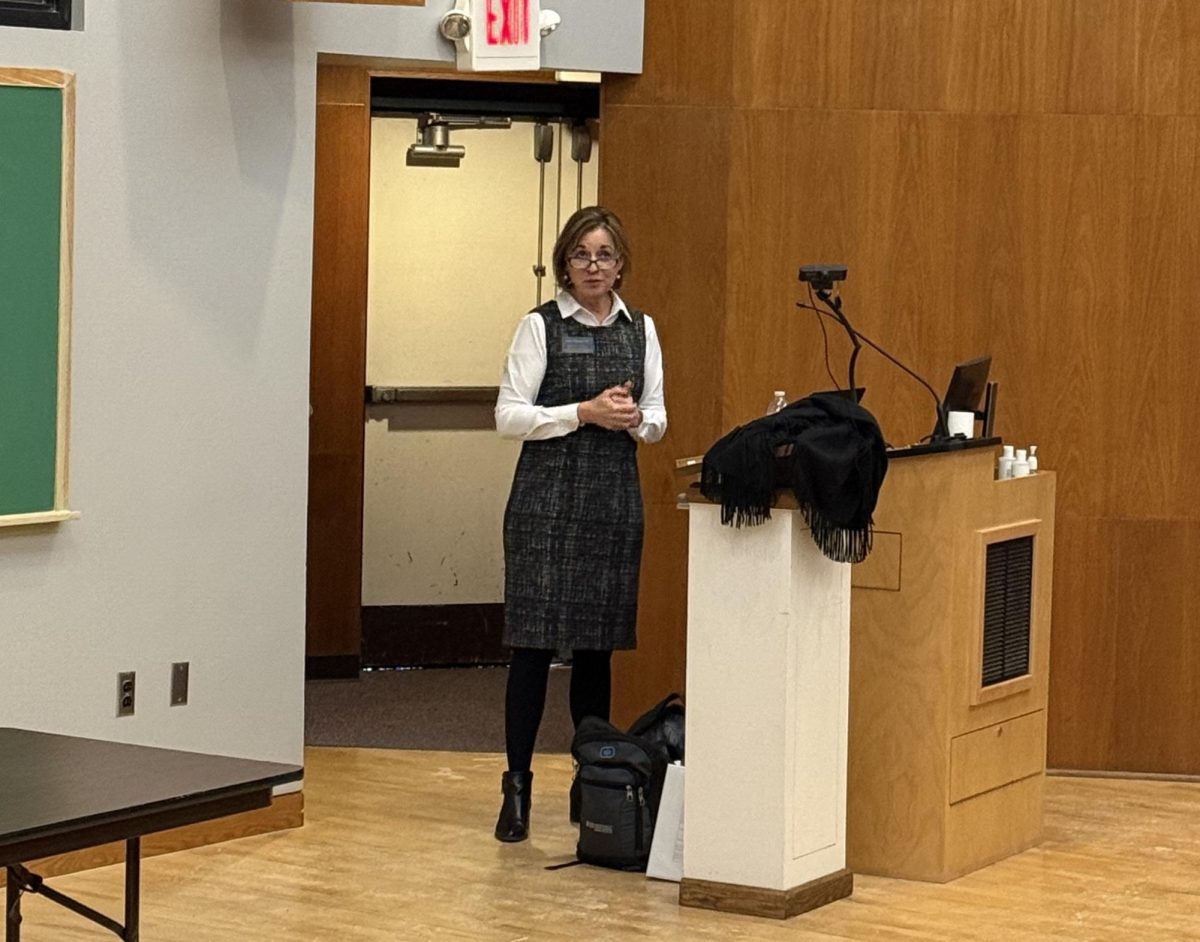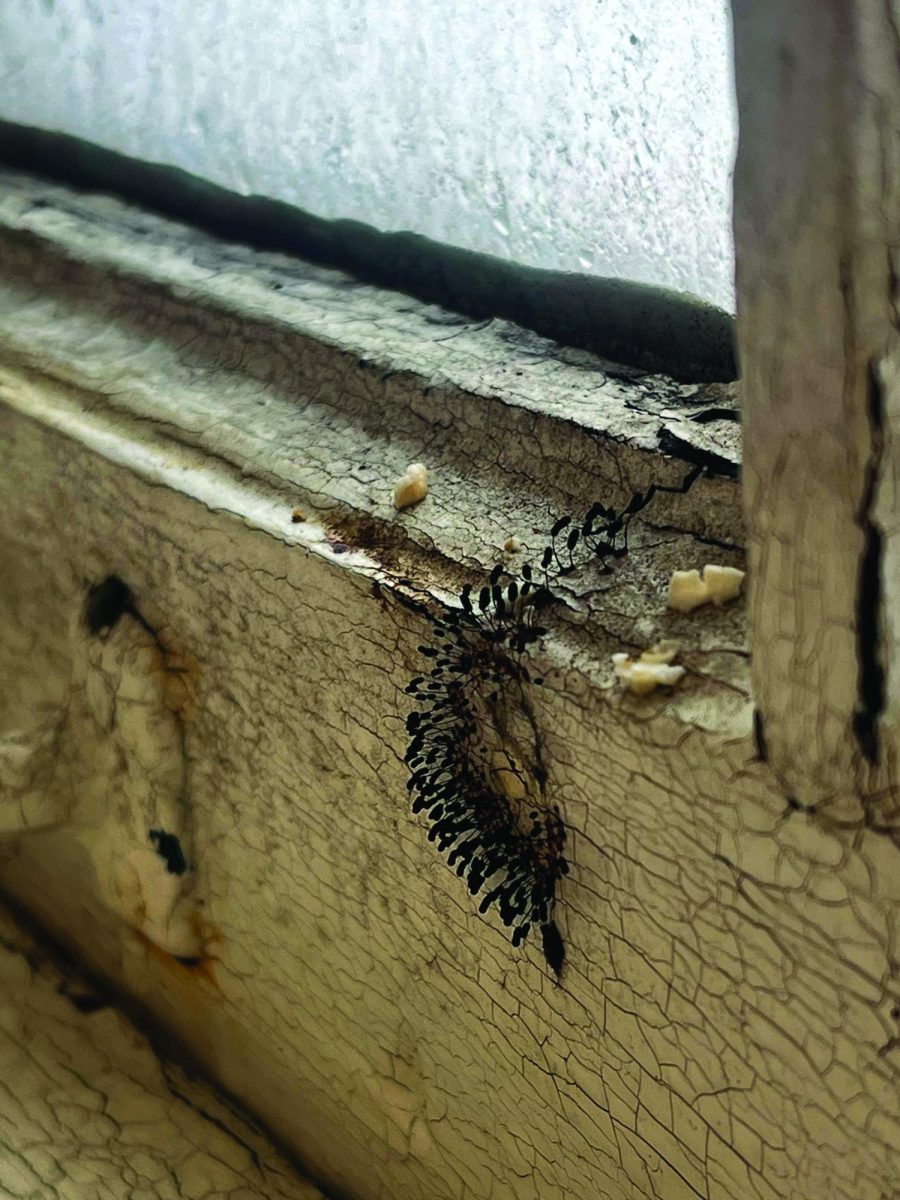Pennsylvania Superior Court Judges Mary Murray, Meghan McCarthy King and Maria McLaughlin heard oral arguments at Allegheny College’s Vukovich Center for Communication Arts on Tuesday, Oct. 1. Students had the opportunity to attend two sessions of oral arguments and an evening lecture from the judges.
“We take our commitment to civic life very seriously at Allegheny College and we are incredibly fortunate to host the Superior Court on our campus,” said Andrew Bloeser, assistant professor of political science and director of the Center for Political Participation. “It is an honor to help support the civic purpose of the court and to make the court’s proceedings more accessible to our students and to the broader community. Not many students get this opportunity.”
During oral arguments, the judges heard many cases ranging from divorce to child welfare to estate ownership and more. Most of the seats in the Gladys Mullenix Black Theatre were filled with students, faculty and community members at the first session.
The stage was set up with three seats for the judges and two tables, one for the appellant and one for the appellee. At the beginning of the first session, opening remarks were given and the Pledge of Allegiance was recited, followed by the Allegheny College Choir singing the “The Star-Spangled Banner.”
The Pennsylvania court system has a hierarchy that begins at the bottom with special courts: Magisterial District Judges and the Pittsburgh Municipal Court both deal with civil, criminal and traffic cases.
Above those special courts are the Courts of Common Pleas, which is organized into 60 districts, each with a president judge and a court administrator. They deal with all types of cases from family law to election integrity, as well as hear appeals from the special courts.
Two intermediate appellate courts hear appeals from Courts of Common Pleas: Commonwealth Court and Superior Court. Commonwealth Court consists of nine judges and deals with matters involving state and local governments and election matters.
The Superior Court, established in 1895, is made up of 15 judges and handles criminal, civil and family cases appealed from the Courts of Common Pleas. Cases can also involve child custody, probation, parole and business disputes.
“While those cases can be reversed by the state Supreme Court, this rarely happens in practice,” Bloeser said.
President Ron Cole, ’87, extended an invitation to the Superior Court earlier this year to visit campus as part of Allegheny’s commitment to promoting civic learning and engagement. The CPP partnered with Jill Hyatt, secondary gifted teacher from Meadville Area Senior High, allowing community students to come and witness the event.
Pennsylvania Superior Court travels around the state to hear cases and make legal services more accessible to the public. The court paid a similar visit to Mansfield University in 2021, though the court visit colleges very rarely. Proceedings like these usually take place at local courthouses. After convening at Allegheny on Tuesday, the court moved to the Crawford County Judicial Center in downtown Meadville on Wednesday.
“Crawford County has three Common Plea Court judges, and we are completely equal in terms of what we do in the courtroom,” said President Judge John Spataro of the Crawford County Court of Common Pleas. “Imagine every conceivable type of legal matter that can arise, we address those.”
The only distinction between Common Pleas court judges is that someone has to be the manager of the court system, and that falls to the president judge. Judges are elected for a 10-year term and then run for retention every decade.
This is the first time that the Superior Court proceedings were held in Meadville. Spataro was not involved with the Superior Court’s visit to campus but provided perspective on the significance of the event in a phone interview Monday.
“[It is] very uncommon [on college campuses] which is why I think it is so special that the court would want to have a session at the college,” Spataro said, “and that President Cole extended this opportunity to the Superior Court and our citizens.”
Spataro also pointed out the significance of the court’s composition.
“Notice that there are three women judges of the Superior Court attending,” Spataro said. “My law school was 80% men and 20% women, with very few female judges in the Commonwealth when I began. It really goes to show how things have progressed properly so over the last 40 years.”
The first female judge of the Superior Court of Pennsylvania, Judge Phyllis W. Beck, was elected in 1983.
The evening lecture was a more personal conversation with the three Superior Court judges. They took the time to explain how the Pennsylvania judicial system works, as well as create meaningful connections between students and faculty.
King stressed that while the Superior Court may be the busiest in Pennsylvania, the busy energy is precisely what she enjoys.
“Do a job you love,” King said during the lecture. “It is a huge part of your life.”
Categories:
Pennsylvania Superior Court visits Allegheny College
Mary Murray (right), accompanied by Maria McLaughlin (left) and Megan McCarthy King, explains different types of appeals that come to the Superior Court.
Story continues below advertisement
0
More to Discover
About the Contributor

Kat Pointer, Staff Writer
“Katherine (Kat) Pointer is a senior, graduating in May 2025. Majoring in Business and minoring in Creative Writing, this is her first year as a Staff Writer. When not writing for The Campus, you can find her writing poetry and prose, or outside with a good book. Kat has had her poetry published in Allegheny’s Overkill magazine and her fiction published in The Allegheny Review.






